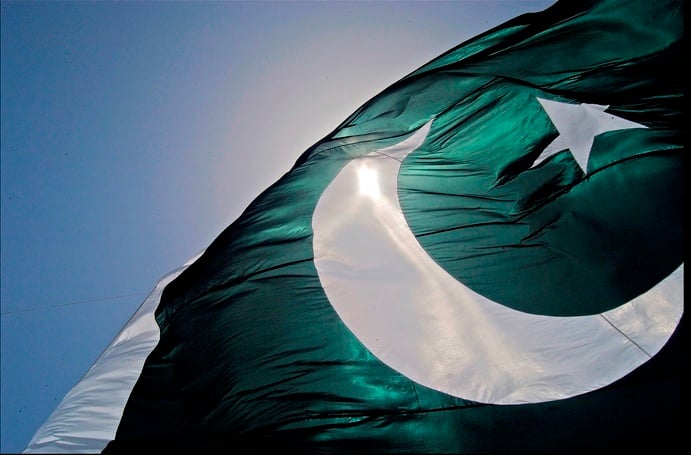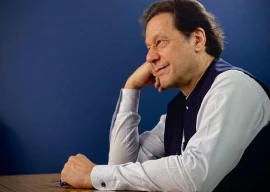
It was not on December 16, 1971, that Pakistan disintegrated into two separate countries but on March 25, 1971, when, in the dead of the night, a military strike was carried out against protesters against the excesses of the military regime. That was the end of a united Pakistan, senior advocate of the Supreme Court and former president of the Supreme Court Bar Association, Hamid Khan said on Friday.
He was giving a talk on the Separation of East Pakistan: Constitutional Causes at the Oxford University Press on Friday. Khan took the audience on a trip down memory lane discussing, what he called the darkest chapter in Pakistan’s history.
“December reminds us of what we have lost and we have indeed lost a lot,” he said. Over the years, the events of 1971 have been gradually forgotten, he said. “[But] it’s not just memories that we have lost.”
Khan said it was regrettable that Pakistan had apparently not learnt its lessons. The youth were mostly unaware of the incidents that led to the fall of Dhaka in 1971 and the secession of East Pakistan, Khan said. He stressed the need to record “true history” and “set the record straight”.

Khan said, “Our young do not know the Pakistan we lived through. We witnessed a part of us being severed and lived through that horrible experience.”
Khan said the Pakistan formed in 1947 was extraordinary. The country was separated by 1,000 miles of ‘hostile’ Indian territory. East Pakistan was a single province while West Pakistan had four provinces, each with distinct social features. He said Balochistan and the then NWFP, now Khyber Pakhtunkhwa, were tribal societies while Sindh and Punjab were feudal societies. He said, East Pakistan had a majority of Muslim small landholders. The non-Muslim in minority included big landholders.
East Pakistan lacked representation in matters of governance and was marginalised, he said. They were not represented in the military till the 1960s when the Bengal Regiment was formed. In West Pakistan, Khan said, an elite establishment comprising civil bureaucracy, landed aristocracy and later the military ruled. This, he said, resulted in the formation of the establishment that would later govern the country.
Bengali was not adopted as the national language even though almost 55 per cent of the population spoke the language in the then united Pakistan, Khan said. The proclamation of Urdu as the only national language bred hostility in East Pakistan. This led to the 1952 language riots in East Pakistan. “Bengalis were sincere Pakistanis...better than those in the West Pakistan. But we pushed them out…they did not want to leave us,” he said.
Khan also discussed the problem of representation of East Pakistan in military and civil bureaucracy, the division of financial resources, separate electorates and the 1965 Indo-Pak war that led to the separation of East Pakistan in 1971.
“The 1965 war was one of the major reasons for what happened in 1971. West Pakistan left East Pakistan practically defenceless in the 1965 war,” he said. East Pakistan, home to 55 per cent of the country’s population, was left with “irregular troops”...the population could not have defended itself, he said.
Khan said some honest and determined leaders in both parts of the country were the only reason the unusual union had lasted. “Self serving bureaucrats and generals had cornered East Pakistan leading to the fateful events of 1971,” he said.
The transfer of power to East Pakistan, he said, was a bone of contention for the establishment of West Pakistan that insisted on ‘sharing power’ as opposed to transferring it. “The war over control of power brought an end to our beautiful Pakistan,” he lamented.
Published in The Express Tribune, December 21st, 2013.
COMMENTS (3)
Comments are moderated and generally will be posted if they are on-topic and not abusive.
For more information, please see our Comments FAQ



1732263441-0/BeFunky-collage-(81)1732263441-0-165x106.webp)
1732263755-0/musk-(3)1732263755-0-165x106.webp)


1732258132-0/BeFunk_§_]__-(26)1732258132-0.jpg)
1732257537-0/Copy-of-Untitled-(64)1732257537-0-270x192.webp)
1726722687-0/Express-Tribune-Web-(9)1726722687-0-270x192.webp)







@Language: dear Hindi is an official language with Devanagri Script check this out
@sabi - is it the most spoken language by a majority people in the country? Even if so no language should be a national language in a Democracy. E.g. Hindi is not a national language in India but just a official language along with English and every Indian state has its own official language.
Only one question to Hamid khan sahib-I want punabi as national language of Pakistan replacing urdu would you accept my demand?.